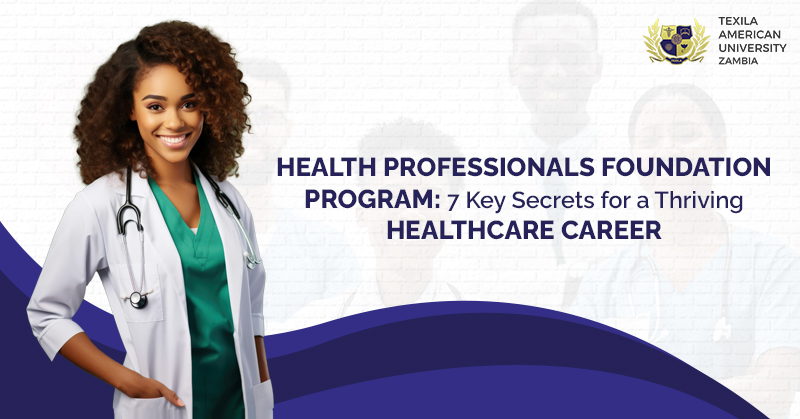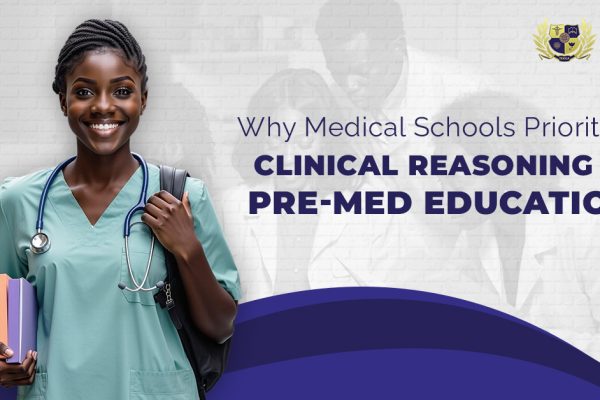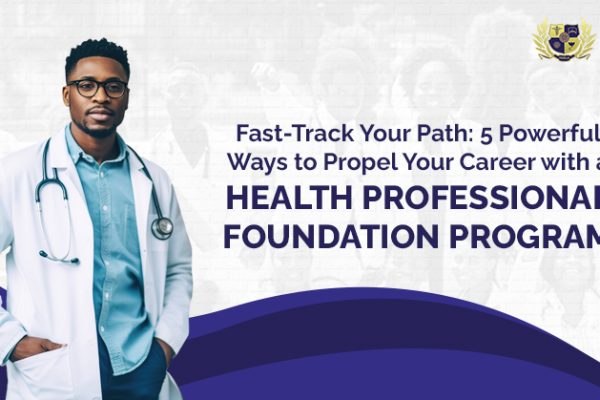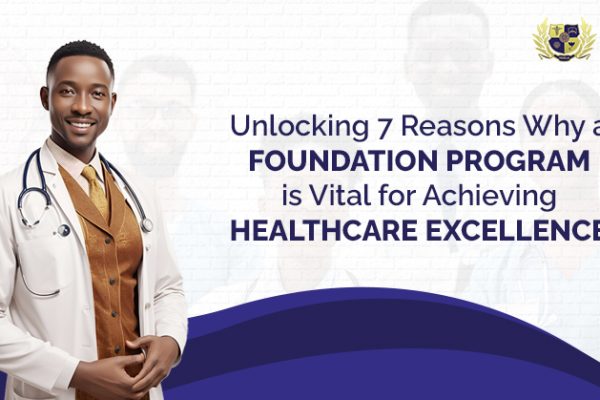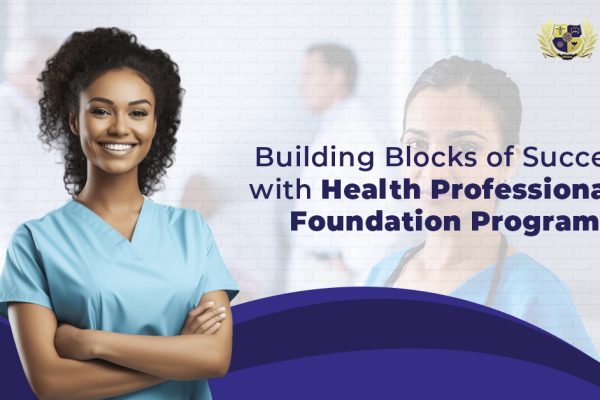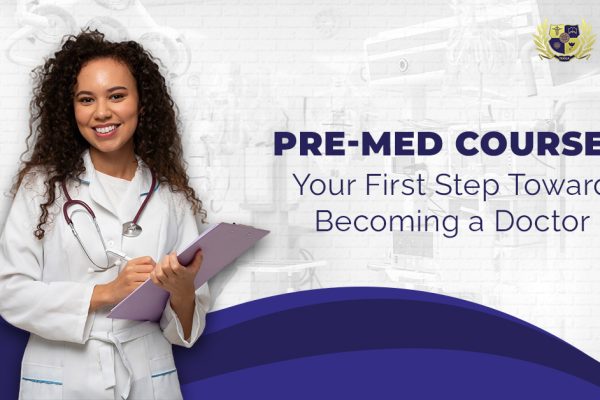|
Tired of Reading? Please listen to the blog
|
Blog Summary
Introduction:
In pursuing a successful career in healthcare, laying a solid foundation is essential. This foundation is provided by programs such as the Health Professionals Foundation Program, which serves as the cornerstone for aspiring healthcare professionals. This article delves into the intricacies of such programs, emphasizing the importance of understanding pre-med courses in Zambia, MBChB degree entry requirements, and the significance of health professions education in shaping future healthcare practitioners. Additionally, it unveils seven essential secrets crucial for thriving in a healthcare career.
Understanding the Health Professionals Foundation Program:
The Health Professionals Foundation Program is a preparatory phase for individuals aspiring to enter healthcare. It provides a comprehensive curriculum to equip students with the necessary knowledge and skills for further education and training in healthcare-related fields. Central to this program is the emphasis on foundational concepts in biology, chemistry, physics, and mathematics, laying the groundwork for more specialized study in medicine or other health professions.
Preparing for a Healthcare Career: Essential Steps:
For individuals considering a healthcare career, navigating the path towards becoming a medical doctor or pursuing other health professions requires careful planning and preparation. In Zambia, pre-med courses play a crucial role in this journey, providing students with a solid academic background in science and mathematics necessary for advanced studies in medicine. Additionally, understanding the MBChB degree entry requirements is essential, as it outlines the educational qualifications and prerequisites required for admission to medical school. A pre-med bachelor’s degree further enhances the qualifications of aspiring healthcare professionals, offering in-depth coursework and practical experiences tailored to the healthcare field.
The Role of Health Professions Education:
Health professions education plays a pivotal role in shaping the future of healthcare by providing students with the knowledge, skills, and competencies required to excel in their chosen fields. Courses in health professional education cover a broad range of topics, encompassing medical ethics, patient care, communication skills, and clinical practice. By fostering critical thinking, problem-solving abilities, and a deep understanding of healthcare systems, these courses prepare students to navigate the complexities of modern healthcare delivery effectively.
Unveiling the 7 Key Secrets for a Thriving Healthcare Career:
In pursuing a fulfilling and successful career in healthcare, aspiring professionals must unlock the seven key secrets essential for thriving in the dynamic landscape of the healthcare industry.
1. Mentorship and Networking:
Establishing robust relationships with seasoned professionals in healthcare can serve as a beacon of guidance and support throughout your career trajectory. Seek mentors who can impart valuable advice, share their wealth of experiences, and offer insights into navigating the complexities of the healthcare domain.
2. Continuous Learning and Professional Development
The healthcare sector is in a perpetual state of evolution, with new advancements and technologies revolutionizing care delivery. Embrace a commitment to lifelong learning by staying abreast of the latest research findings, actively participating in conferences, and pursuing additional certifications or advanced degrees to augment your expertise and skills.
3. Data-oriented and Research-based Practice in Healthcare:
As healthcare professionals embark on their journey, integrating data-oriented and research-based practices is paramount for ensuring high-quality care delivery and continuous improvement within the healthcare landscape. Understanding the significance of evidence-based medicine and leveraging data-driven insights can significantly enhance patient outcomes and drive innovations in healthcare. In the Health Professionals Foundation Program, aspiring healthcare practitioners are introduced to the fundamentals of data analysis and research methodologies. They learn to evaluate medical literature critically, interpret statistical findings, and apply evidence-based guidelines in clinical decision-making.
Moreover, cultivating a culture of inquiry and continuous improvement is essential in healthcare settings. Through research projects and clinical rotations, students gain hands-on experience conducting research, collecting data, and analyzing outcomes. This experiential learning fosters a mindset of inquiry and innovation, empowering future healthcare leaders to drive positive change and contribute to advancing medical knowledge.
By embracing data-oriented and research-based practices, healthcare professionals can enhance the effectiveness of patient care, optimize resource allocation, and contribute to the collective effort to improve healthcare outcomes globally. Through ongoing education and collaboration, they can harness the power of data and research to address emerging challenges and drive innovation in healthcare delivery.
4. Cultivating Empathy and Compassion:
The profound human connection between caregivers and patients lies at the core of healthcare. Cultivate empathy by attentively listening to patients’ concerns, empathizing with their experiences, and treating each individual with utmost dignity and respect, fostering a therapeutic alliance built on compassion and understanding.
5. Building Resilience and Coping Mechanisms:
The healthcare profession often entails encountering emotionally and physically taxing situations, necessitating resilience to navigate adversities effectively. Foster healthy coping mechanisms such as mindfulness practices, regular exercise, and seeking support from peers and loved ones to safeguard your mental and emotional wellbeing and mitigate the risk of burnout.
6. Embracing Diversity and Cultural Competence:
Healthcare is a mosaic of diverse backgrounds, cultures, and beliefs, necessitating a deep-seated commitment to inclusivity and cultural competence. Embrace diversity by fostering an understanding of diverse populations’ unique needs and perspectives, thereby delivering inclusive, respectful care tailored to individual cultural preferences.
7. Advocating for Patient-Centered Care:
Central to the ethos of healthcare is the unwavering commitment to prioritizing the needs and preferences of patients. Advocate for patient-centered care by actively involving patients in decision-making processes, fostering transparent and open communication, and delivering personalized, holistic care aligned with patients’ values and aspirations, fostering a collaborative partnership between caregivers and patients.
By embracing these seven foundational pillars, aspiring healthcare Professionals might embark on a revolutionary path toward a fulfilling and impactful career dedicated to improving people’s and communities’ wellbeing and health.
Conclusion:
In conclusion, the Health Professionals Foundation Program lays the groundwork for a prosperous career in healthcare by providing aspiring professionals with the essential skills and information necessary for success in their chosen fields. By understanding pre-med courses in Zambia, MBChB degree entry requirements, and the importance of health professions education, individuals can embark on their journey towards becoming compassionate and competent healthcare practitioners. Additionally, by embracing the 7 critical secrets outlined in this article, aspiring healthcare professionals can confidently navigate the challenges of the healthcare landscape, ensuring a fulfilling and thriving career dedicated to improving the health and wellbeing of others.

